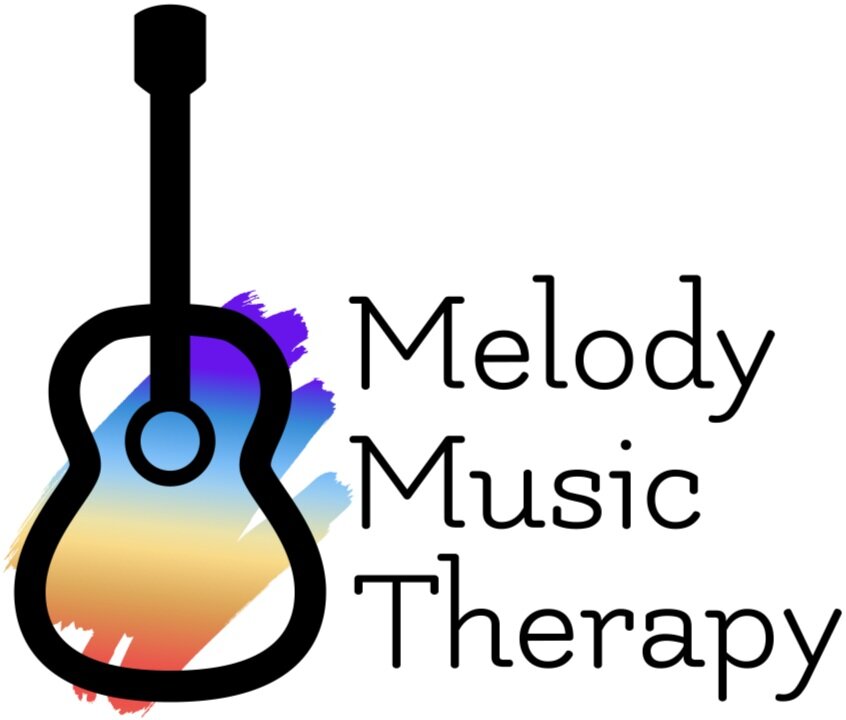
Frequently Asked Questions
How is music therapy different from music performance?
Therapy is about the relationship between the client and the therapist. For example, listening to a performance or recording of a song can be entertaining, but music therapy can take that same song a step further and help the individual process the memories or emotions brought up with the song in a therapeutic relationship. Music therapists can use that same song to help the individual improve motor, social, emotional, cognitive, and communication skills. Music therapists are trained in how to utilize music as a therapeutic tool, whereas music performers are trained in how to perform the music to the best of their ability.
What does a typical music therapy session look like?
There really isn’t such thing as a “typical” session as music therapy utilizes a variety of music interventions to best fit the client’s needs. On any given day, a music therapist might be assisting a client with writing a song about something they’re struggling with, jamming out to some Daniel Tiger while a client utilizes gross and fine motor skills to hit a drum, or even engaging a client’s cognitive skills in reminiscing to a familiar song from their youth, to name just a few examples.
What is music therapy?
Melody Music Therapy’s personal definition of music therapy can be found on our home page. Additionally, the American Music Therapy Association (AMTA) provides the following definition of music therapy: “Music Therapy is the clinical and evidence-based use of music interventions to accomplish individualized goals within a therapeutic relationship by a credentialed professional who has completed an approved music therapy program.Music Therapy is an established health profession in which music is used within a therapeutic relationship to address physical, emotional, cognitive, and social needs of individuals. After assessing the strengths and needs of each client, the qualified music therapist provides the indicated treatment including creating, singing, moving to, and/or listening to music. Through musical involvement in the therapeutic context, clients' abilities are strengthened and transferred to other areas of their lives. Music therapy also provides avenues for communication that can be helpful to those who find it difficult to express themselves in words. Research in music therapy supports its effectiveness in many areas such as: overall physical rehabilitation and facilitating movement, increasing people's motivation to become engaged in their treatment, providing emotional support for clients and their families, and providing an outlet for expression of feelings.” (AMTA, 2020).
Who do music therapists work with?
Music therapists can work with so many different populations of all ages and abilities! Music therapists work with individuals with intellectual and developmental disabilities, learning disabilities, mental health needs, memory care needs, expectant mothers, babies in Neonatal Intensive Care Units, incarcerated individuals, hospitalized individuals, military veterans, and so many other populations. Many people can potentially benefit from music therapy, so if you are wondering if you or someone you know could benefit from music therapy services, please ask!
Where do your music therapy sessions take place?
Our music therapy sessions primarily take place at the client’s home, our Columbia office, or at outside facilities. Located in Gaithersburg, MD, we serve clients all over Montgomery and Howard Counties, as well as the bordering edges of Frederick, Carroll, Prince George’s, and Anne Arundel counties. We also offer telehealth visits when appropriate for those who live outside of our service ranges.
How much does a music therapy session cost?
Individual music therapy sessions cost $70 for 30 minutes, $95 for 45 minutes, and $120 for 60 minutes.
